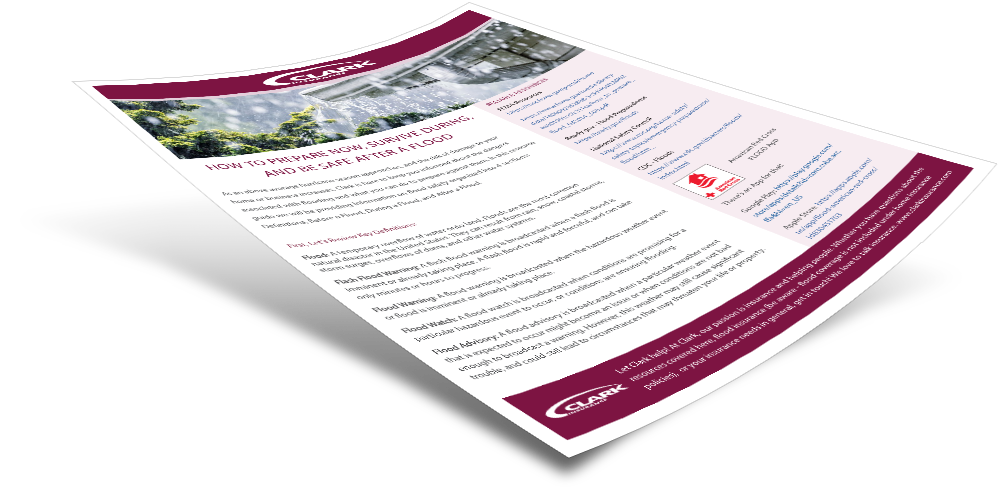25 Aug Rising Water: Why More People Need Flood Insurance
As New Englanders, we’re used to weathering a storm, especially when that storm is a Nor’easter. What we don’t often think about are hurricanes or flash floods. A little extra rain here and there is nothing, but in recent years, there has been an increase in the severity of hurricane season, and it’s reaching farther north. This change in weather patterns is expected to cause an increase in flooding as well.
Many homeowners don’t think twice about flood insurance unless they are required to. Unfortunately, with this increase in inclement weather, this has to change. With just one inch of water needed to damage your possessions and home, and flood zone maps being updated, flooding is a real concern for every homeowner. Here’s what you need to know.
Do I Need Flood Insurance?
If you live in a high-risk flood zone, it’s a given. You need flood insurance. Flood zones are dictated by the Federal Emergency Management Agency (FEMA) maps that are updated every 5 years based on changing weather and flooding patterns. If your home or business property was initially listed in a flood zone, you would’ve been required to purchase flood insurance by your mortgage holder.
Although your home or business might not have been in a flood zone initially, that could change over time – and might already have. Due to environmental causes, more home and business owners are finding their once-safe property is now threatened by flooding. It’s important to check the FEMA flood maps every few years to stay abreast to changes to your area. On top of that, take note of what happens on your property following large rainstorms. Before water begins to swell or pool in your yard, consider protecting yourself against the imminent damage.
For these reasons, many folks are considering adding flood insurance to ensure their property and assets are protected.
How Does Flood Insurance Work?
The big misconception we see is that people assume flood insurance is a part of their home insurance policy. This is actually not the case, as flood insurance has to be added as a separate policy. Let’s take a look.
To start, there are two types of flood insurance – building flood insurance and contents flood insurance. Building flood insurance covers the structural aspects of your home that make it habitable, including things like your foundation, electrical, and plumbing. This coverage also insures the large appliances in your home such as furnaces, stoves, refrigerators, etc.
For most standard flood insurance policies, contents flood insurance is an additional endorsement. This insures your personal property within your home such as clothing, furniture, TVs, rugs, and more. The fun hangout spot or man cave you finished in your basement would need to be covered under contents insurance in case of water damage. Many people are surprised to learn these items are not automatically covered under their home insurance policy and require separate flood insurance.
Why get Flood Insurance Now?
Among the safety considerations already mentioned, there is real cost savings to be had when purchasing flood insurance and that has to do with the timing of FEMA flood maps changing. Specifically, if you are not in a flood zone currently but you are going to be rezoned into one, you can purchase flood insurance now, and that lower rate may be grandfathered in. Those that didn’t, will be forced to purchase flood insurance at a higher rate after the maps go into effect.
Needless to say, with hurricane season around the corner and FEMA flood map changes looming, the writing is on the wall for many homeowners.
Protect Your Home from Flood Damage
Like many insurance policies, you don’t want to wait until the last minute to add flood insurance coverage. Adding flood insurance now – before hurricane season and before FEMA flood zones determine you need it – ensures not only that you will be covered in time, but you can often lock in premiums at a lower price. It’s always better to have peace of mind and be covered now, than to wish you had added flood insurance sooner, before rate hikes or flood damage occurs.




